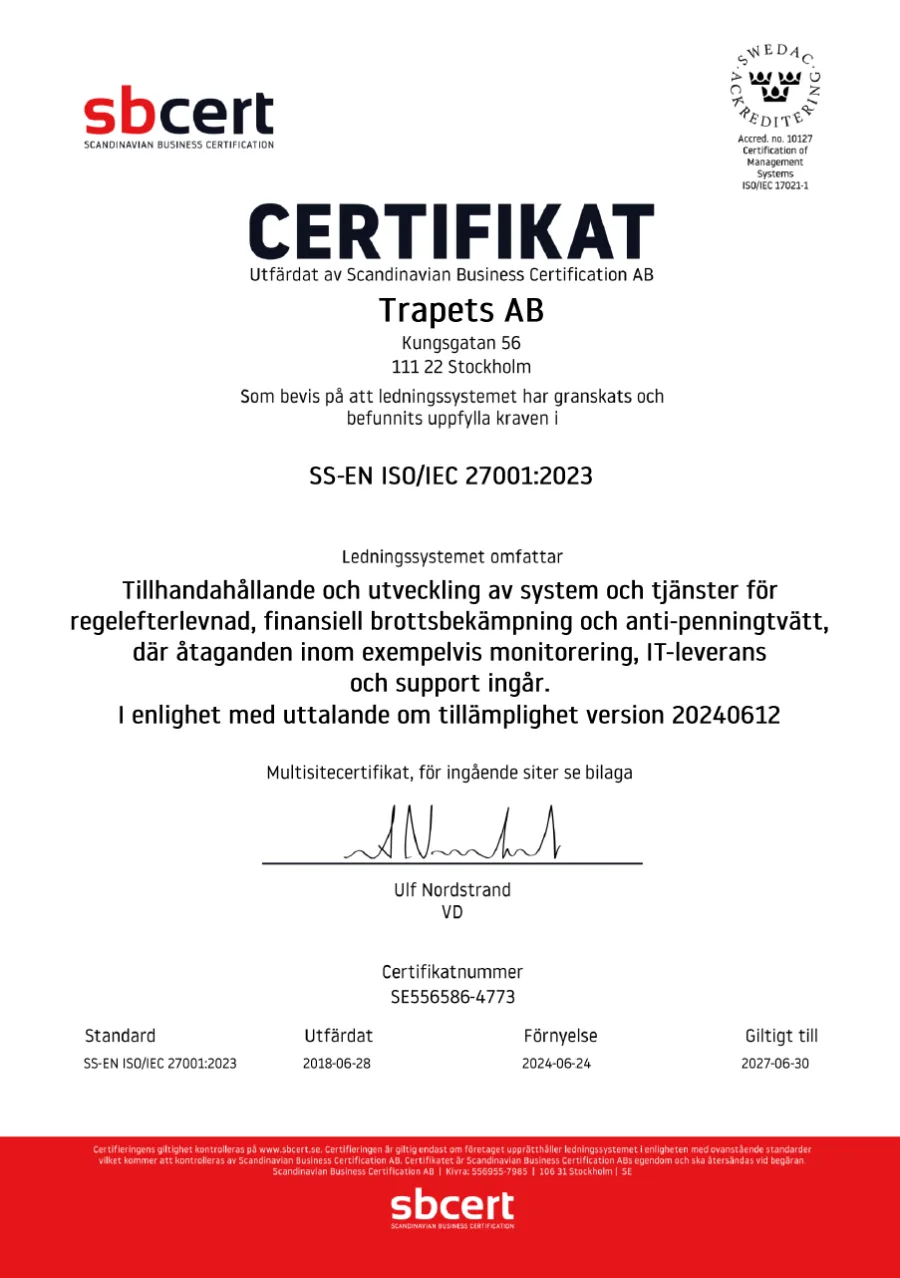
CEO Gabriella Bussien recognised as inspiring female european leader to follow in 2025
We are proud to highlight our CEO, Gabriella Bussien, who has been recognised as one of the inspiring female European leaders to follow in 2025.
Latest news
Discover the latest industry news and updates from Trapets.


We are proud to highlight our CEO, Gabriella Bussien, who has been recognised as one of the inspiring female European leaders to follow in 2025.

Trapets has successfully secured a significant public tender for its transaction monitoring and screening solutions with Norsk Tipping.

We are proud to announce our recertification for ISO 27001, the international standard for information security management systems.

Safello has chosen Trapets Transaction Monitoring to support their anti-money laundering processes.

Trapets, a leading Nordic RegTech company, is pleased to announce the appointment of Gabriella Bussien as its Chief Executive Officer.

We are happy to announce our partnership with ThreatFabric to enable financial institutions to operate more securely and confidently.

We are happy to announce the acquisition of Regtech Solutions, a Swedish company specializing in KYC and screening services, to broaden our impact beyond financial services and strengthen our position in the regulatory technology market.

In close collaboration with our customers, Trapets' compliance experts have developed a new screening list aligned with the EU's 50 per cent rule, enhancing KYC processes and ensuring compliance with sanctions guidelines.

Cybernews has named our Instantwatch platform one of the “Best Compliance Solutions”.

We are excited to announce the engagement between Kraft Bank and Trapets to include our customer due diligence solutions in their processes.

As a provider of global sanction lists, we want to ensure that you are updated and aware of how we at Trapets ensure that the latest developments are reflected correctly in all our Sanction Lists Services.

We are pleased to be part of the AIFinTech100 list for 2022 as one of the most innovative companies developing AI technologies in FinTech.